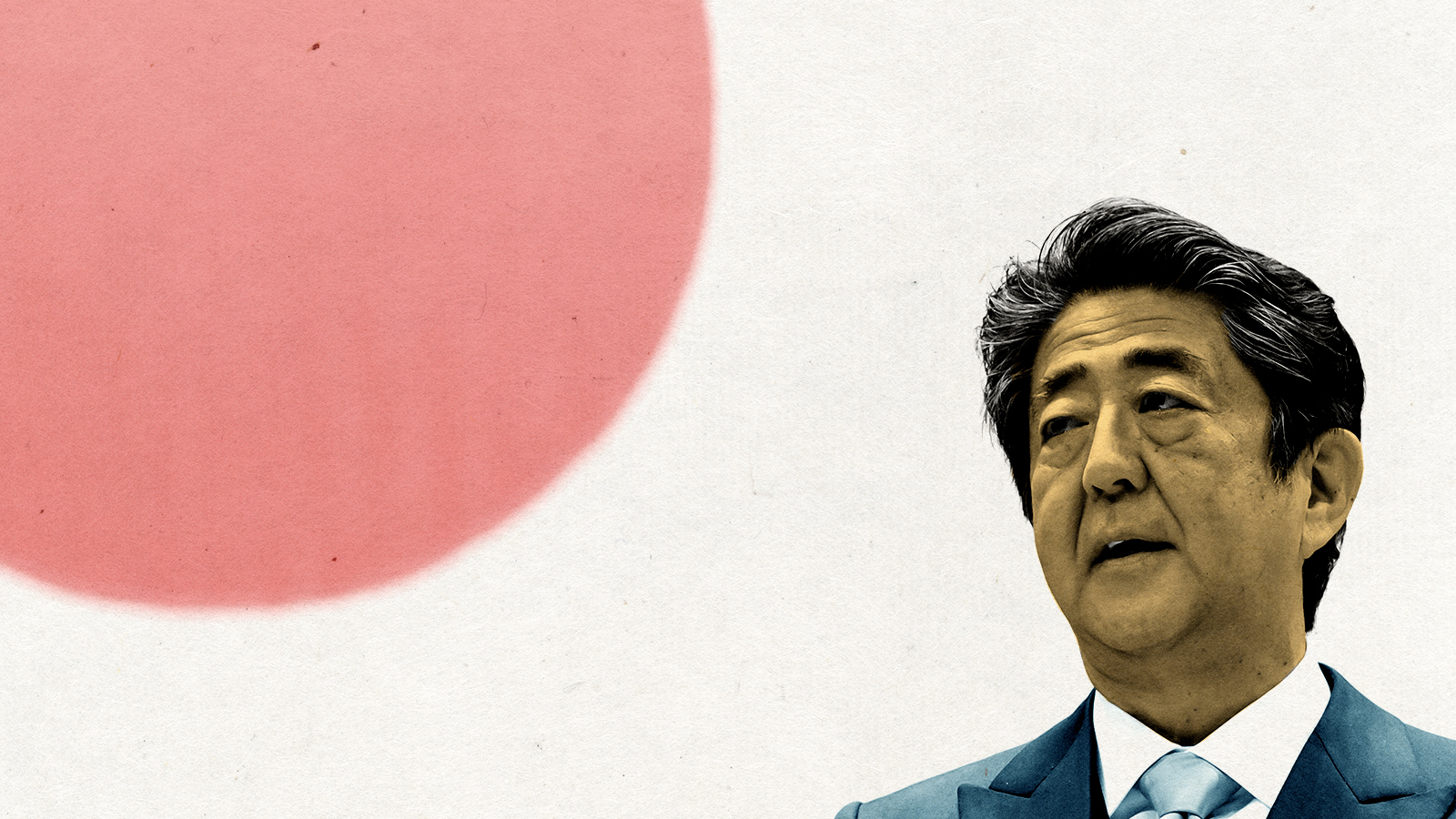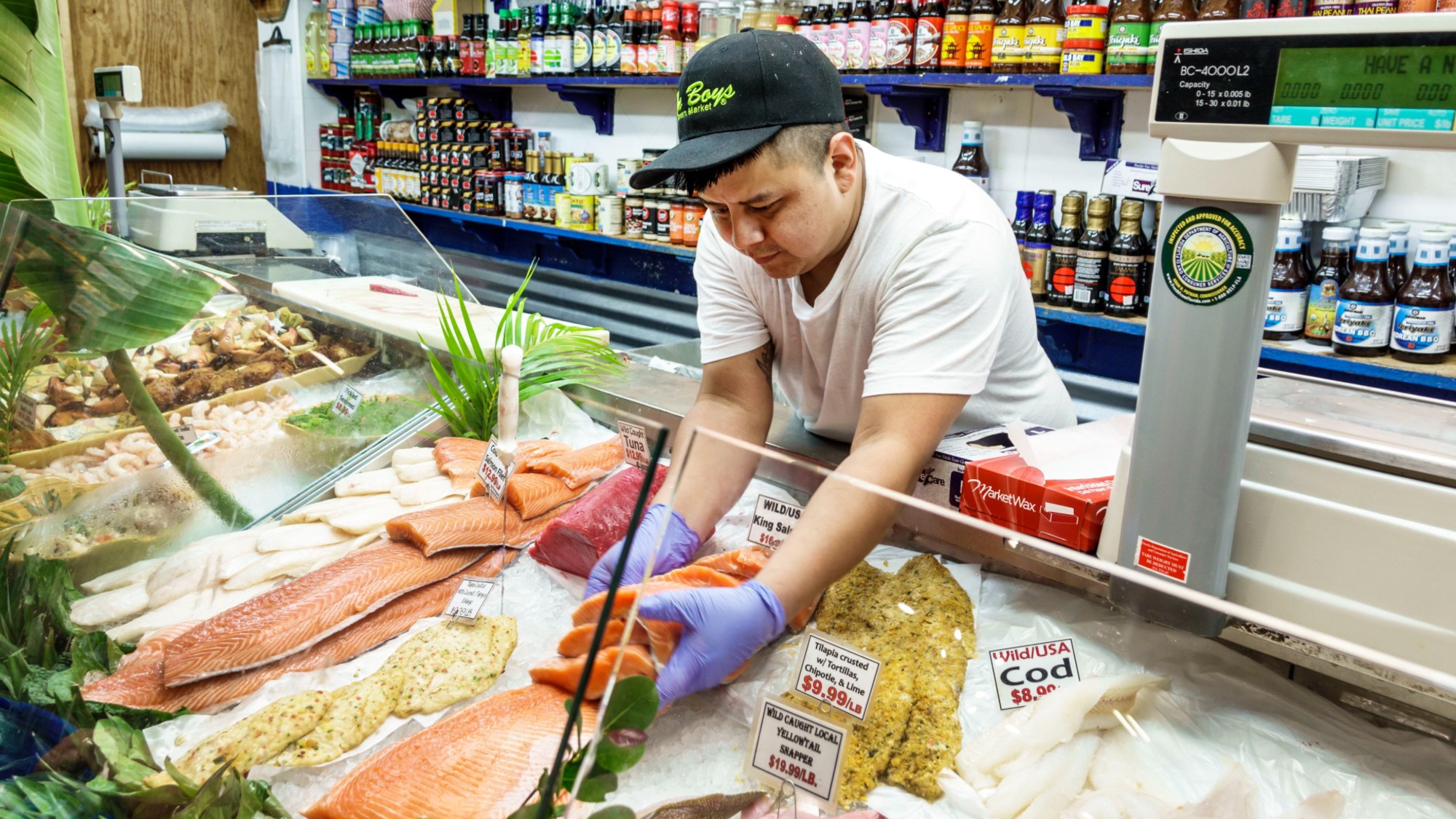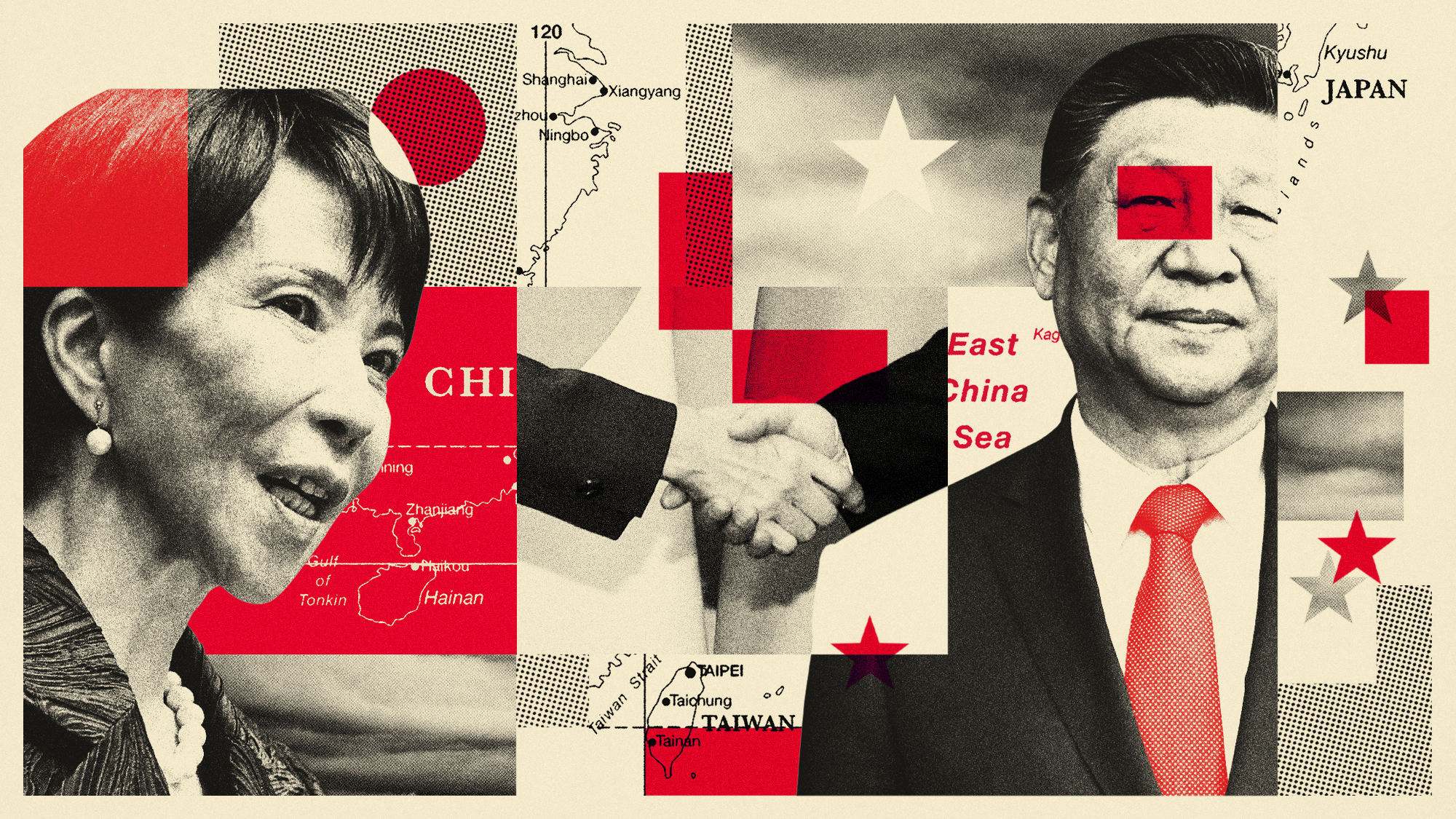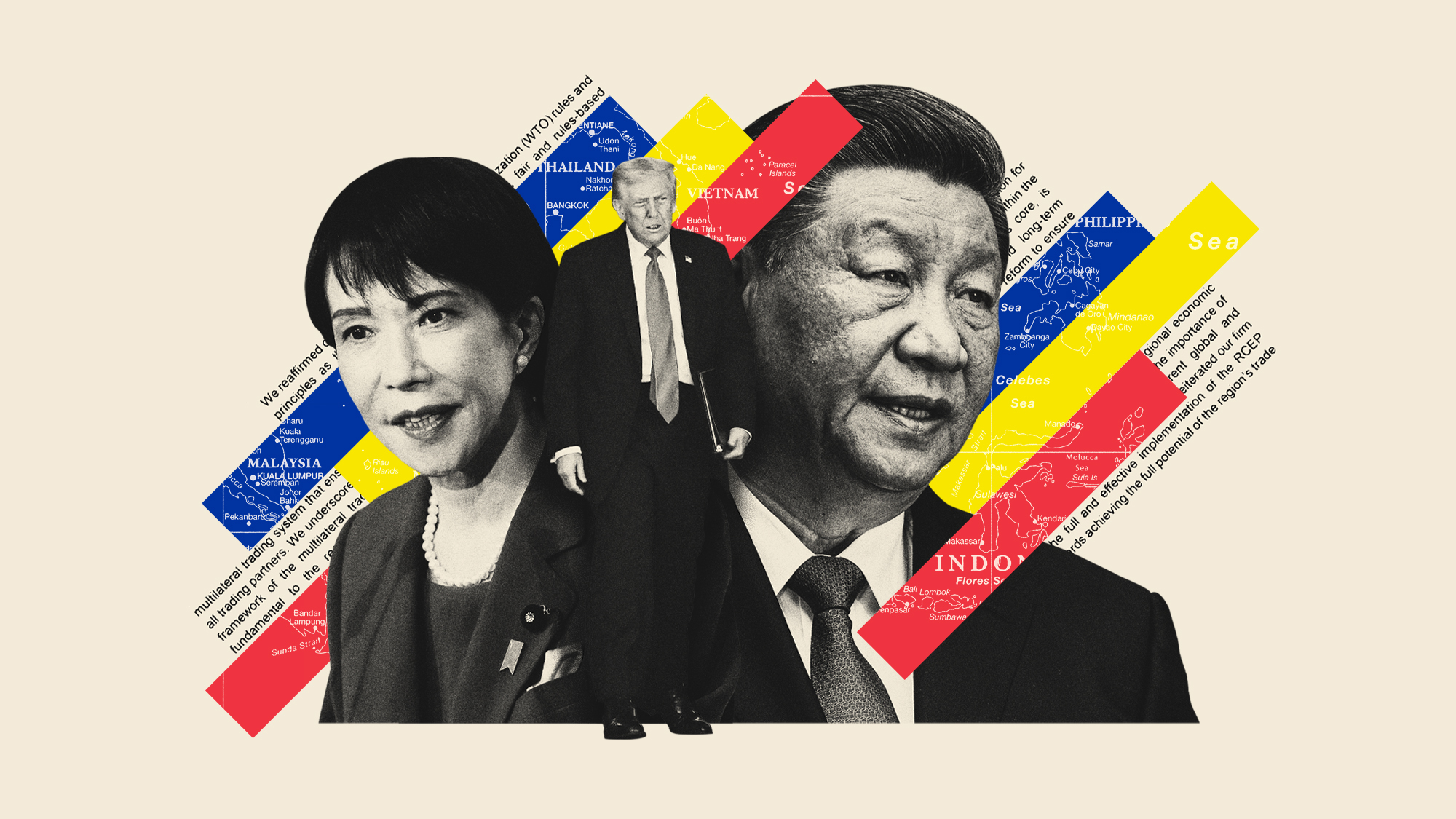Shinzo Abe's legacy
'He wanted Japan to be respected on the global stage in the way that he felt was deserved'


A free daily email with the biggest news stories of the day – and the best features from TheWeek.com
You are now subscribed
Your newsletter sign-up was successful
Shinzo Abe, Japan's former and longest-serving prime minister, was shot with a handmade weapon and later died on Friday, after campaigning for a politician in his Liberal Democratic Party ahead of this weekend's parliamentary elections. His assassination has left Japan in a state of shock, considering the nation's strict gun laws and lack of political violence. Suspect Tetsuya Yamagami, 41, is currently in police custody. Here's everything you need to know about the nation's late leader:
Early Days
Abe, 67, was an incredibly powerful and prominent figure in Japanese politics, even after his tenure as prime minister ended in 2020. He resigned due to illness, after initially assuming the top spot in 2012 (though he also briefly served as premier from 2006 to 2007). He came from a family of politicos; his grandfather Nobusuke Kishi served as prime minister from 1957 to 1960, while his father, Shintaro Abe, held what is "often seen as the country's second-most powerful position" — chief cabinet secretary — from 1977 to 1978, The Washington Post reports.
Born in Tokyo, Abe graduated from the city's Seikei University in 1977 with a degree in political science before spending three semesters studying public policy at the University of Southern California. He was first elected as a legislator for the Liberal Democratic Party in 1993, "representing the southwestern prefecture of Yamaguchi," The Associated Press writes. He was later appointed chief cabinet secretary under Prime Minister Junichiro Koizumi in 2005, around which time he was also set up to take over as premier for the first time the following year.
The Week
Escape your echo chamber. Get the facts behind the news, plus analysis from multiple perspectives.

Sign up for The Week's Free Newsletters
From our morning news briefing to a weekly Good News Newsletter, get the best of The Week delivered directly to your inbox.
From our morning news briefing to a weekly Good News Newsletter, get the best of The Week delivered directly to your inbox.
Leadership and legacy
While in office, Abe "pushed to strengthen the nation's military, beefed up cooperation with U.S. forces, and made Tokyo a more muscular force in international diplomacy," The Wall Street Journal reports. He also worked to "revitalize the stagnant Japanese economy, which lost its position as Asia's largest between his two stints in office," the Post adds. That said, whether his so-called "Abenomics" — a package of economic policies that included monetary easing and increased government spending, among other measures — actually worked in revving up the economy is still up for debate. Abe also hoped to amend Japan's pacifist Constitution — which many conservatives view as a reminder of Japan's defeat in World War II — but never succeeded.
"He's the most towering political figure in Japan over the past couple of decades," Waseda University political scientist Dave Leheny told AP. "He wanted Japan to be respected on the global stage in the way that he felt was deserved. ... He also wanted Japan to not have to keep apologizing for World War II."
As for his work in the international community, Abe forged a close relationship between his nation and India, Asia's most populous country and a fellow member of the Quadrilateral Security Dialogue alongside the U.S. and Australia. He was the first world leader to meet with Donald Trump after the 2016 election, later developing a friendship with the then-president. He also, while out of office this year, urged the U.S. to commit to defending Taiwan in the event of a Chinese attack, and reportedly helped facilitate the delivery of millions of COVID-19 vaccines to Taiwan during a troublesome wave of infections.
Despite his long tenure and popularity, Abe is nonetheless described as a controversial politician, having "weathered several fund-raising and favoritism scandals on a scale that had toppled past premiers," Bloomberg writes. His 2006 to 2007 leadership stint was rendered short thanks to an ongoing battle with ulcerative colitis, but not before "a series of scandals — including the government's loss of pension records, affecting about 50 million claims — hit his administration hard," notes BBC News. Then, in 2020, there was also the so-called "Cherry Blossom" scandal, in which prosecutors investigated whether Abe, his aide, and others in his orbit had violated campaign and election funds laws by subsidizing "cherry blossom viewing parties for his supporters from 2016 to 2019," Al Jazeera notes. Abe eventually apologized for the relevant financial discrepancies: "Even though the accounting procedures happened without my knowledge, I feel morally responsible for what happened," he told a parliamentary committee. "I reflect on this deeply and apologize from my heart to the citizens and to all legislators."
A free daily email with the biggest news stories of the day – and the best features from TheWeek.com
World leaders react
Leaders across the international community reacted to Abe's death with a mix of shock, sadness, and reverence. France's Emmanuel Macron, for example, paid tribute to the late leader by sharing a message in Japanese alongside one in French, while India's Narendra Modi published a blog post reflecting on the pair's relationship.
Writing on Truth Social, Trump also joined in mourning the loss of who he described as a "great man and leader."
"He was a unifier like no other," Trump wrote, "but above all, he was a man who loved and cherished his magnificent country, Japan. Shinzo Abe will be greatly missed. There will never be another like him."
CORRECTION: An earlier version of this article misstated the name of suspect Tetsuya Yamagami. It has since been corrected. We regret the error.
Brigid Kennedy worked at The Week from 2021 to 2023 as a staff writer, junior editor and then story editor, with an interest in U.S. politics, the economy and the music industry.
-
 Bonfire of the Murdochs: an ‘utterly gripping’ book
Bonfire of the Murdochs: an ‘utterly gripping’ bookThe Week Recommends Gabriel Sherman examines Rupert Murdoch’s ‘war of succession’ over his media empire
-
 Gwen John: Strange Beauties – a ‘superb’ retrospective
Gwen John: Strange Beauties – a ‘superb’ retrospectiveThe Week Recommends ‘Daunting’ show at the National Museum Cardiff plunges viewers into the Welsh artist’s ‘spiritual, austere existence’
-
 Should the EU and UK join Trump’s board of peace?
Should the EU and UK join Trump’s board of peace?Today's Big Question After rushing to praise the initiative European leaders are now alarmed
-
 Japan’s Takaichi cements power with snap election win
Japan’s Takaichi cements power with snap election winSpeed Read President Donald Trump congratulated the conservative prime minister
-
 The billionaires’ wealth tax: a catastrophe for California?
The billionaires’ wealth tax: a catastrophe for California?Talking Point Peter Thiel and Larry Page preparing to change state residency
-
 Bari Weiss’ ‘60 Minutes’ scandal is about more than one report
Bari Weiss’ ‘60 Minutes’ scandal is about more than one reportIN THE SPOTLIGHT By blocking an approved segment on a controversial prison holding US deportees in El Salvador, the editor-in-chief of CBS News has become the main story
-
 ‘Latinos bring a wealth of knowledge and cultural connection to the ocean’
‘Latinos bring a wealth of knowledge and cultural connection to the ocean’Instant Opinion Opinion, comment and editorials of the day
-
 Why are China and Japan fighting over Taiwan?
Why are China and Japan fighting over Taiwan?Today's Big Question Comments on Taiwan draw Beijing's rebuke
-
 Has Zohran Mamdani shown the Democrats how to win again?
Has Zohran Mamdani shown the Democrats how to win again?Today’s Big Question New York City mayoral election touted as victory for left-wing populists but moderate centrist wins elsewhere present more complex path for Democratic Party
-
 Donald Trump’s week in Asia: can he shift power away from China?
Donald Trump’s week in Asia: can he shift power away from China?Today's Big Question US president’s whirlwind week of diplomacy aims to bolster economic ties and de-escalate trade war with China
-
 Millions turn out for anti-Trump ‘No Kings’ rallies
Millions turn out for anti-Trump ‘No Kings’ ralliesSpeed Read An estimated 7 million people participated, 2 million more than at the first ‘No Kings’ protest in June
